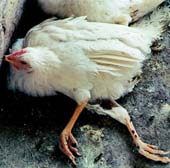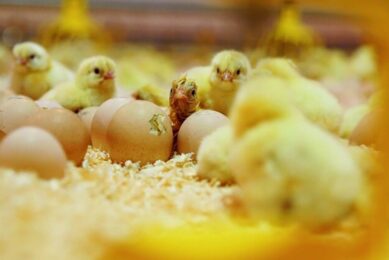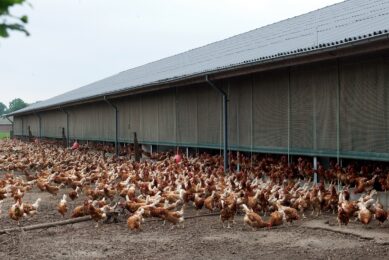Managing Marek’s disease through genomics

Scientists at the Agricultural Research Service (ARS) are working to decipher the genomes of several nonvirulent Marek’s disease (MDV) vaccine strains, in order to identify how to best fight virulent and other infectious strains of the disease.
Microbiologists Stephen Spatz at the ARS Southeast Poultry Research Laboratory and Robert Silva at the ARS Avian Disease and Oncology Laboratory have teamed up to compare nonvirulent MDV strains used in vaccines.
Marek’s disease is the first cancer-causing virus for which a tumour-preventing vaccine was developed. In the US, most commercial chickens are vaccinated against Marek’s disease virus type 1 (MDV1) while inside the egg. In Europe, chicks are vaccinated when they are one day old. While these very successful vaccination programmes, begun in the 1960s, have saved the industry billions of dollars, the MDV problem still persists.
That’s because selective pressures imposed on the virus in vaccinated birds cause new variants to evolve that could pose a threat to the poultry industry. Because the virus is constantly evolving, new vaccines have to be developed to keep them in check.
To investigate the differences between the variants, Spatz and Silva initiated a comparative genomics research programme. It involves determining the DNA sequences of various strains of MDV. Some of these are nonvirulent ones used as commercial vaccines, while others cause severe disease in chickens. By examining the differences between these strains at the DNA level, the two researchers hope to identify the genes involved in virulence – that is, the virus’ ability to cause disease.
Once these genes have been identified, improved vaccines containing modifications in the virulence genes can be engineered and used to protect chickens against current disease-causing MDV strains, as well as against future strains.
ARS is the US Department of Agriculture’s principal scientific research agency.
Join 31,000+ subscribers
Subscribe to our newsletter to stay updated about all the need-to-know content in the poultry sector, three times a week. Beheer
Beheer








 WP Admin
WP Admin  Bewerk bericht
Bewerk bericht